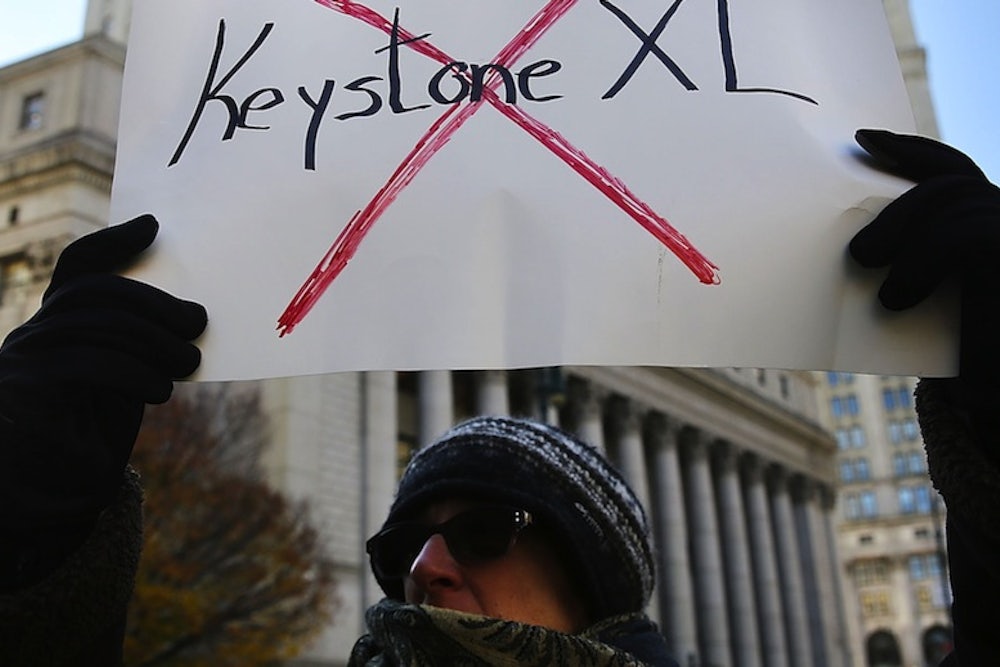The Senate failed by one vote Tuesday to advance a bill that fast-tracks construction of the Keystone XL pipeline. Fifty-nine senators voted in favor of Mary Landrieu’s bill, which aimed at boosting her long-shot hope of retaining her seat in a December runoff election, except it fell short of reaching a filibuster-proof majority. This was the first full-floor Senate vote on Keystone, after the House of Representatives held nine votes in its favor, with its latest vote held on Friday.
Keystone supporters have little to worry about, though. The Republican-controlled Congress will just repeat this exercise in the new session.
Whether the pipeline gets built still depends on two variables. Obama’s decision is still unclear, though he appears to be leaning toward vetoing a bill that circumvents federal and state approval. The other holdouts are in Nebraska. The Nebraska Supreme Court still has to rule on a lawsuit challenging the state’s approval of the pipeline.
Supporters often embellish how many jobs Keystone will create. Landrieu, who faces a difficult runoff election in December against Congressman Bill Cassidy, claims it creates tens of thousands of jobs. TransCanada—the company behind the pipeline—on the other hand, doesn’t estimate it will create more than a few dozen permanent jobs.
In the end, most Americans wouldn't notice Keystone’s impact—both good and bad. Landrieu’s own constituents have no direct stake in the project either, since it does not run through the state. It won’t noticeably impact gas prices and only creates a few dozen permanent jobs. Americans certainly won’t notice the greenhouse gas pollution associated with Keystone and the crude oil it will carry from the Canadian tar sands. Keystone has become a rallying point for climate activists precisely because of this invisible impact (the troubling image of a massive pipeline running through six states helps, too).
The irony is that, after six years of debate and deliberation, the Keystone decision comes when the economics surrounding the pipeline have largely made the issue irrelevant. Oil prices have dropped sharply, an American boom in natural gas and oil production have lessened foreign demand, and companies have proposed alternative pipelines and rail transport to carry the oil from Canada.
Not that this means the tar sands will be abandoned. TransCanada has alternative plans, like another brand-new pipeline, to ship the oil to refineries on the Gulf coast. Keystone is just one factor in how much companies can exploit tar sands for a profit.
